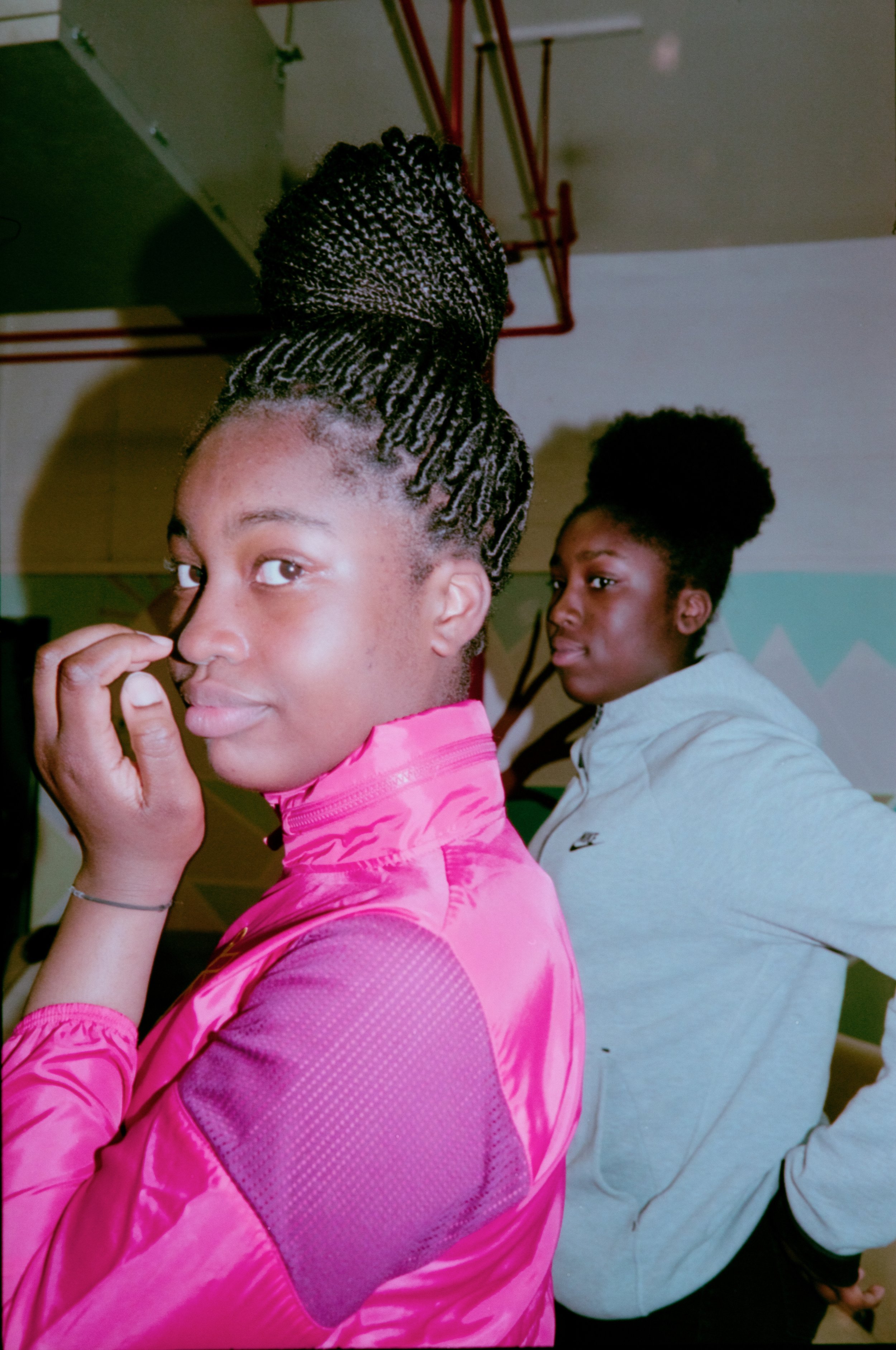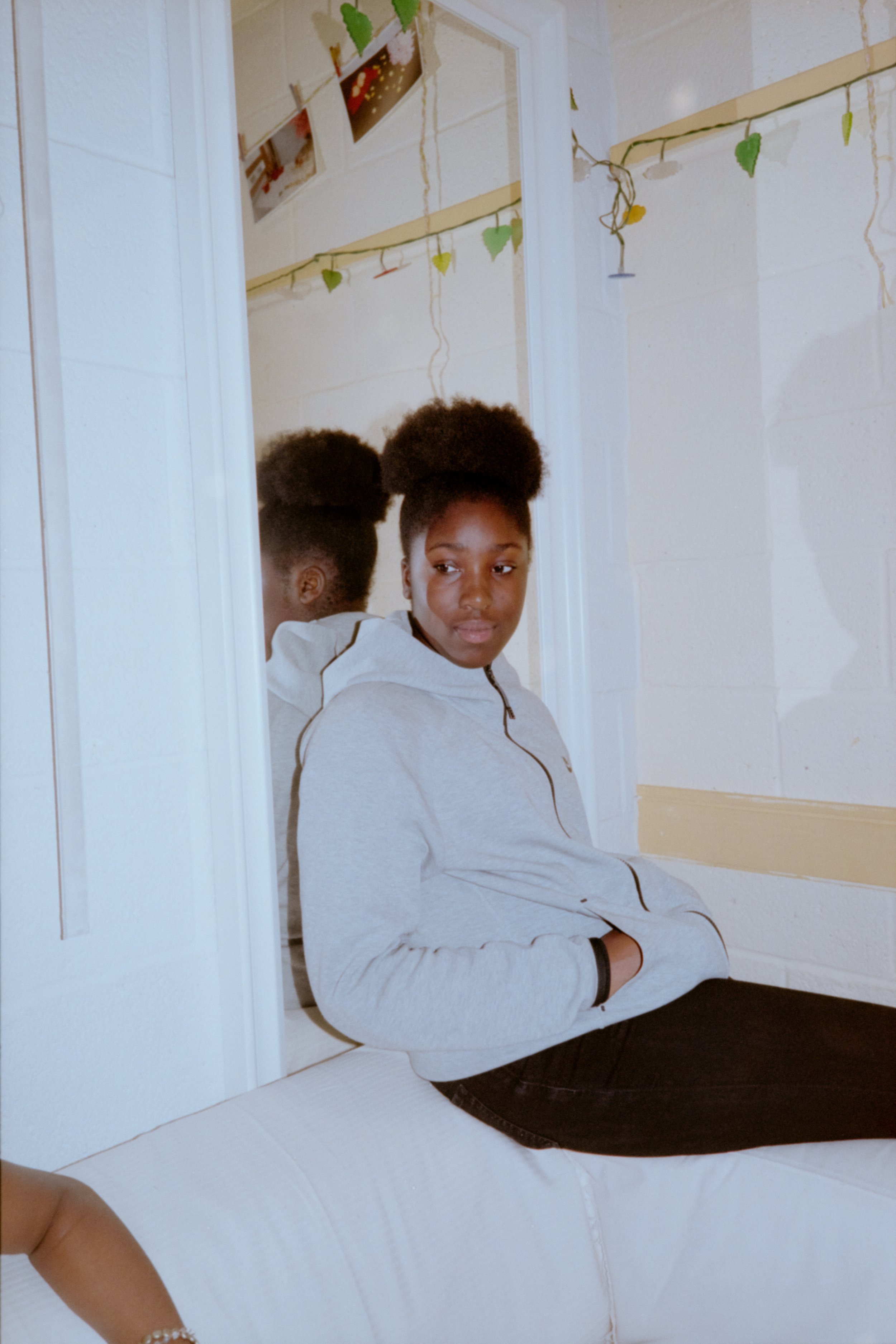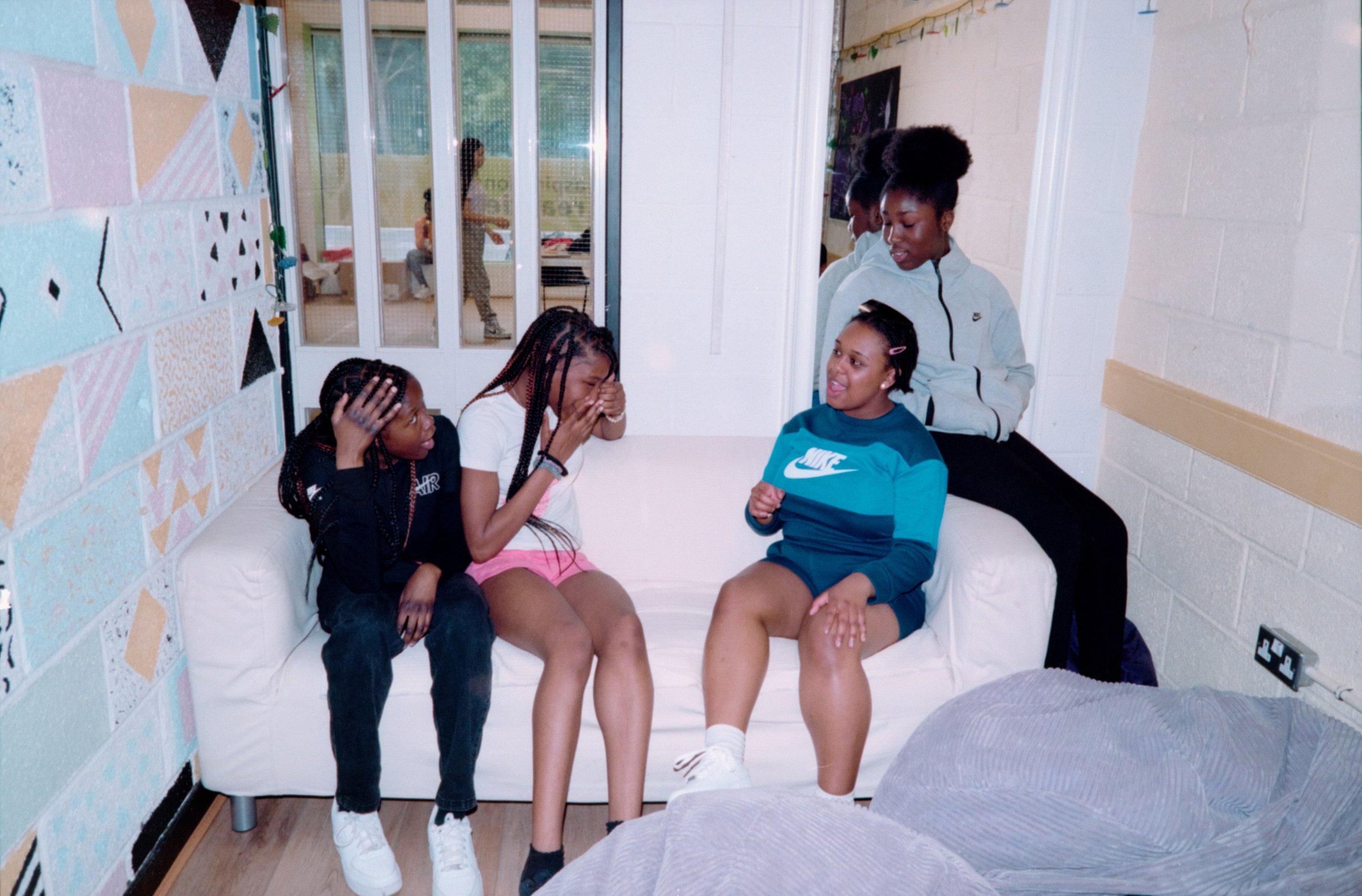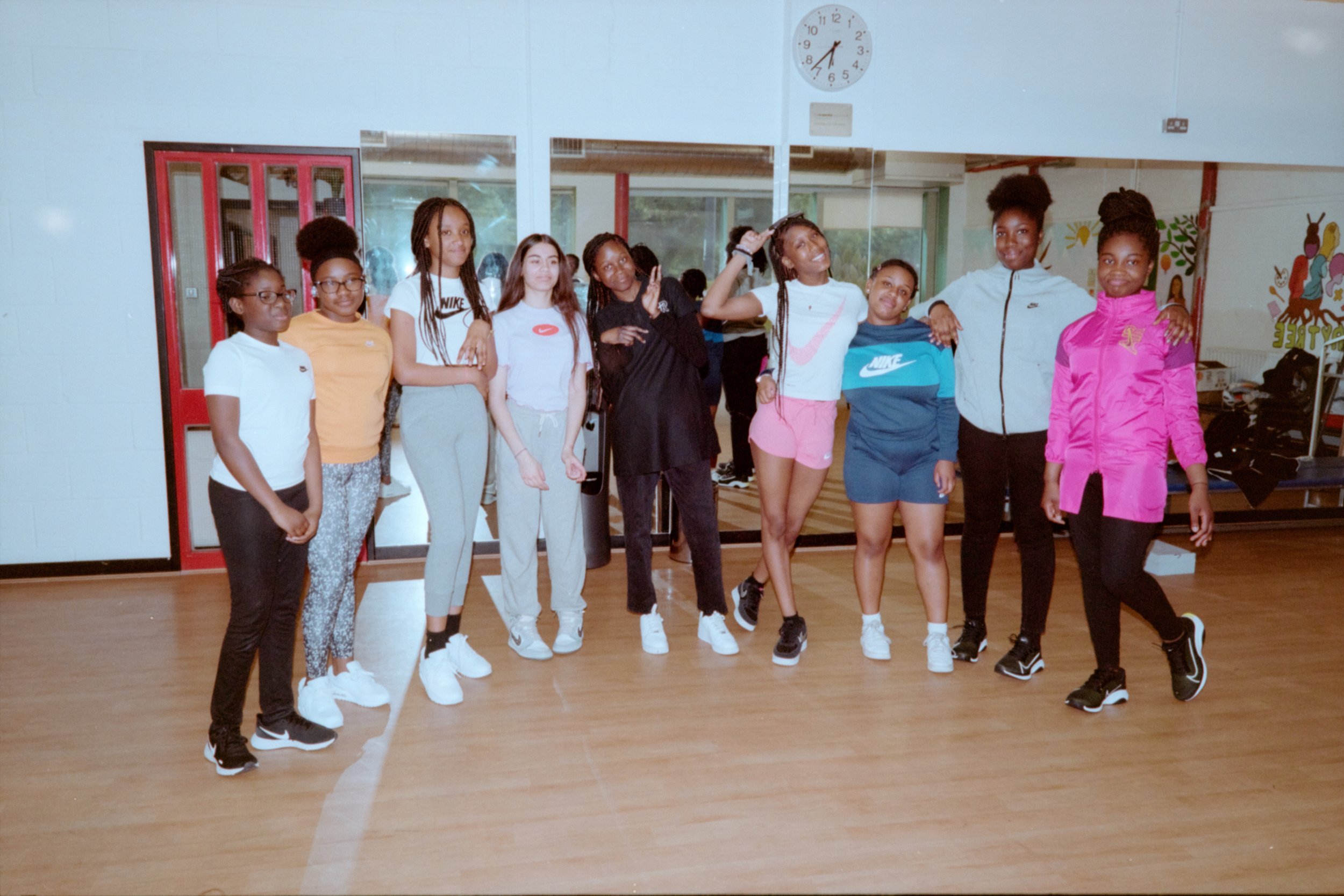Girls to The Front! The Youth Centre Endowing its Members With Newfound Confidence
The Baytree Centre is the Youth Club that aims to nurture young girls of colour into the impressive women of colour they have all the right to be.
Organisation: @baytreecentre
Photographer: @jessicamadavo
Creative Director: @roena
Creative Lead & Stylist: @jermainerrobinson
Interviewer: @tashaabramson
In collaboration with creative agency: @vibecalledtech @lewisdaltongilbert
Special thanks to: @nikelondon
What would you expect a 14-year-old to say when asked the one thing they would wish to change? Would it be this:
“I feel society doesn’t see us as important because we are still a couple of years away from being adults; we’re not working and we’re still in education. We’re just not considered.”
This honest, articulate discussion is taking place at The Baytree Centre; a female-only charity with its own building located in the heart of Brixton. The charity works with young girls and women to improve their confidence, and help them in the workplace. Having operated since 1991, The Baytree Centre supports almost 600 girls and women with their mission every year.
The charity is one of the recipients of the Nike London Grant Initiative, which backs charities that work to challenge systematic racism through sports, mentorship, educational growth and development within the Black community. It has offered 12 months of support to non-profits with grants of £5,000 to £20,000 across London. The Sparking Future project, supported by the grant, runs for girls in Year 7 and upwards, including those as young as 11, and as old as 18.
The programme offers a variety of mentoring, inspirational career experience opportunities and more; however, a typical session at Spark begins sat in a circle talking about their day and receiving advice, feedback and support, both from older mentors and peers of their age. It’s in this safe space that they’re listened to in times when these young girls don’t feel heard.
The girls we speak with today attend Junior Spark, with most of them having joined the programme after recommendations from friends and family. Most of the girls are having fun, forgetting the camera is there, and trying to get on with their friends.
Natasha: How has Spark helped you?
Analis, 14: I joined the Baytree Centre because I have very low self-esteem. My mum thought that coming to a place like this after school and socialising with other girls my age would be good for my self-esteem and confidence. My self-esteem is so much better now, mostly because people around here are so supportive. The activities here involve a lot of speaking. Especially for a woman, it’s harder to raise your voice in the world that we are in today. I’m not just learning how to speak around anyone, I’m learning how to speak about different women from different backgrounds. It’s okay for me to speak up and say when I think something isn’t right.
Elsie, 14: At first, joining Baytree, I found it kind of awkward because I was new and I didn’t know what to expect, but it was really welcoming and I’ve stayed here since then. I’ve always been quiet, I don’t really socialise that much, but now I’m comfortable speaking to people I don’t know. Baytree encouraged me to start a girls’ football team and join the debating team at my school.
Natasha: What have you achieved because of Spark?
Elsie: I started a petition for a girls’ football team. I wouldn’t have done it if it wasn’t for Spark; I wouldn’t have noticed that there was anything wrong with there not being a girls’ football team. We started playing five-a-side matches with other schools’ girls’ football teams. Sometimes we played with a full team and it resulted in us starting a tournament with different schools in the area. I remember I was once standing at a bus stop, and I heard a boy talking to his mum, and he said, “Did you know that the school has started a girls’ football team because a girls’ football tournament is going on in the area?”
Analis: We had a competition coming up with another school and we had to debate four different things – they picked me to be head of the team, which was a bit overwhelming. But it helped me with my confidence, because of Spark, and we ended up winning the debate. It was so nerve-wracking. If it wasn’t for Spark I wouldn’t have joined; there were so many people and we had an audience. I’m still head of the debating team now.
Natasha: Why did you join Spark?
Analis: I joined Spark mainly for female empowerment, and because my mum thought it would be good for me.
Elsie: I joined because my two older sisters used to go and it opens up a lot of opportunities for us. Baytree has taught me how to speak to people who aren’t necessarily from the same background as me.
Natasha: What are some of your favourite things you’ve done with Spark?
Elsie: On International Women’s Day we got to hear from five women; a doctor from Nigeria, a photographer from India, another who escaped from a war and is now a lawyer, an artist, and a writer. We got to ask them questions and I learned so much from them.
Analis: We did work experience with different placements in Brixton Pop. On the last day we took part in this big event, and were just helping around. We got involved in different businesses, like the barber shop. I got to do pizza making, working in an office, and then the big event at the end. I enjoyed the event at the end the most. We didn’t really get to relax because we were mainly helping around, but it was so much fun.
Natasha: If you could change one thing, what would it be?
Elsie: I feel like, in society, our age group is more forgotten about. We’re not considered when it comes to decisions. The whole thing with Covid and free school meals, and everything – I don’t think the government really considered what that would mean for us, as children. Even with lockdown, I don’t think the government really considered how much education we were going to miss out on. I went into Year 7, got half-way through the year, and now I’m in Year 9. I barely got experience in Year 8, which was basically all done online, exams and everything. I don’t feel like the government understands how much that has affected us. I think they’ve discussed how if you don’t pass your GCSE English or Maths then you don’t get a student loan; but I don’t feel like it is a smart idea, because there are people who struggle with English and Maths, and have fallen behind. I’m not saying that we can always use lockdown as an excuse for stuff we haven’t achieved, but to be honest, it has contributed to a major part of that. I feel society doesn’t see us as important because we are still a couple of years away from being adults; we’re not working and we’re still in education. We’re just not considered.
Natasha: What are your aspirations for the future?
Analis: I’m not sure what I want to do. Part of me wants to own my own business, but I do know I want to do something to do with hospitality or nursing.
Elise: I want to go into molecular engineering when I’m done with school, and if I take a gap year then I will volunteer at Battersea Dogs and Cats Home.
During the photoshoot, after I had spoken with Analis and Elsie, some of the older girls started talking amongst themselves. They began to uncover a sphere of insecurities, worlds away from the confidence they had previously displayed to us. One of them speaks about her love for make-up, but mentions how she is told not to wear it despite how it supports her confidence. Between them they reveal that they’ve been on social media from as young as 9-years-old, with a mounting pressure to use filters not taken lightly.
After a while, the concerns about how they look in photos extends to the photos we are candidly taking of them in a space they consider to be safe. Reassuring a worried teen girl is not for the half-hearted, and perhaps it hits home even more because, with the exception of our stylist, we too are women.
Following this I speak to Adejoke and Zainab, the newest members of the Spark group.
Natasha: When did you join Spark?
Adejoke, 11: I joined Baytree when I was six, and joined Spark a term ago.
Natasha: How has Spark helped you and your aspirations?
Adejoke: I want to go to medical school and be a doctor. Spark helps me build confidence in myself, solve my own problems, make friends better, and know how to give my own advice. I feel like Spark has helped me talk about things like racism with better meaning.
Natasha: How has Spark helped you?
Zainab, 11: I feel more confident talking to adults and other people my age. Before I didn’t really like talking to other people, but now I share my feelings and express myself.
All the young girls display confidence as the stylist and photographer give directions for the photos, and their mentor gets them to play games. It’s clear a young sisterhood is developing, which could develop into life-long friendships with opportunities abundant.
The girls are all very articulate for their age. The experience at the Baytree Centre is a clear demonstration of why Junior Spark and similar programmes are needed. As a teenager, life is difficult while navigating unwarranted advice from adults, not being listened to when you do actually speak up, and experiencing pressures that parents in older generations never had to deal with themselves. Junior Spark is allowing discussions on these very problems to occur in a safe and nurturing environment, and in this way cultivates community while providing the necessary tools for their young girls to thrive.







